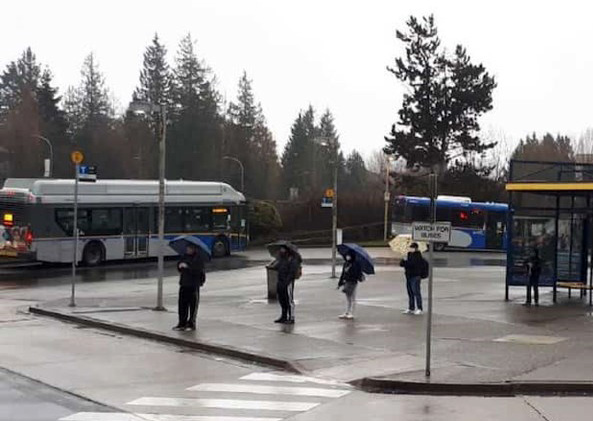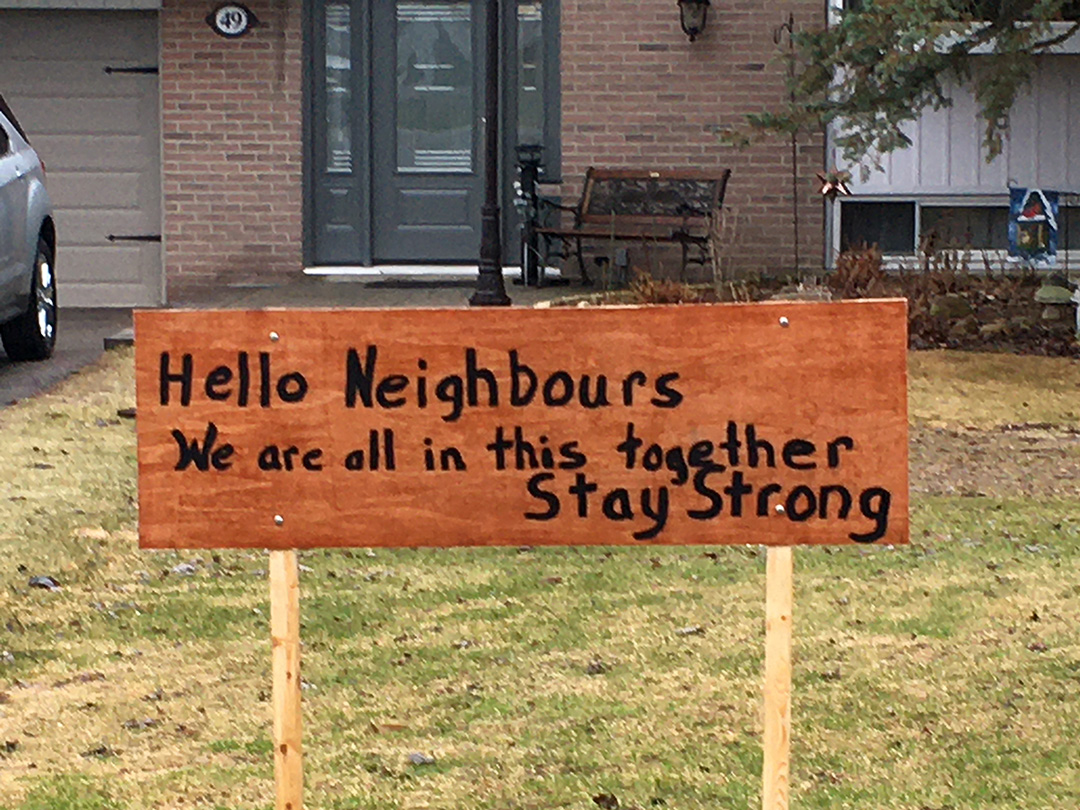
Monday was Day 10 of our physical distancing. As I’ve done most days of my wife’s and my voluntary isolation, I emerged from my house early enough to retrieve both the newspaper at the foot of my driveway and at my neighbour’s. Coincidentally, he came out his front door at the same time. Keeping our distance, I tossed him the paper.
“How’re you doing?” I asked.
“Bored!” was all he said.
He didn’t have to say another thing. We nodded, smiled. He went back inside. I went on my way.
A few times over the past 10 days, my wife and I have walked together to escape our boredom inside the house, but under normal circumstances I walk alone. Even so, solitary steps during a self-isolating pandemic looked, sounded, felt, even smelled different this week.
With most people indoors, early in the day, I smelled wood-burning stoves a lot more, bacon and eggs, and yes, even the aroma of hand disinfectant. The few people I met generally veered to the far side of the road or sidewalk; there was a nod of recognition as we each gave way to the prescribed two-metres of space. It felt so clinical, cold, impersonal.
The mind goes to odd places while walking outdoors during a global pandemic. Among my thoughts: It must be the absolute best time to be a dog; if I thought canines had deductive brains (maybe they do), they’ve got to wonder why everybody – not just the regular guy or gal with a leash – wants to take them for a walk.
And if, as they say, dogs’ noses contain 40 times the number of nasal receptors that we do, walking with so many of their own species out there must be an olfactory smorgasbord for dogs.
Friends have commented about the contradictory nature of human confinement, else why would incarceration – solitary or otherwise – be considered such a powerful deterrent. So much human activity – conversation, cultural expression, economy, political engagement – happens face-to-face or certainly in the presence of others.
But too often the confinement of this pandemic has become inhuman, indeed inhumane. We’ve watched excruciating stories this week about family members prevented from attending their loved ones at seniors’ or health-care facilities. Inside, residents suffer from the ravages of the virus – forced by quarantine to be alone – while outside their spouses, siblings or offspring ache to be inside to at least provide tangible comfort.
Such isolation on both sides is anathema to normal human interaction, but – they tell us – it’s vital and necessary to flatten the curve of COVID-19.
While not nearly as painful or life-threatening as these circumstances, I miss the human contact of my work – interviewing sources, collaborating with other broadcasters, public speaking and mentoring students. I was a reporting and broadcast instructor for 18 years at Centennial College, in part to give back to the profession.
The truth be known, however, I also taught to stay in touch with the next generation of journalists who will practise, improve and validate the need for the public to know. I thrived on the privilege to speak to students in a lecture hall, writing workshops or story meetings. Human interaction.
I can remember one or two other moments of forced distancing due to health in my life. When I was 14, during a pickup baseball game on the last day of school in 1963, the catcher and I (playing shortstop) chased the same pop fly; we collided head-on on the pitcher’s mound. I broke my nose, lost my front teeth and was unconscious for several minutes.
When I came to and they pieced me back together, I was laid up in bed (during the first weeks of summer holidays) recuperating. That was the summer I first asked my dad what he’d done in the Second World War. What he told me and what he didn’t, sparked my curiosity for a lifetime (the product of which filled the pages of my history of medics published last fall).
Then, in the 1980s, I was bed-ridden and self-quarantined for a week with pneumonia. That’s the closest I ever want to come to a serious respiratory infection or complete social isolation.

On Monday morning, the same day I tossed my neighbour his newspaper this week, I followed one of my regular walking paths across town – giving way to a few other strollers, joggers and dog-walkers – and made my way toward the last leg of my regimen, up a hill on the north side of town.
Part way up, I spotted a large wooden sign recently erected on a front lawn. Painted in black letters was a message for all to read.
“Hello Neighbours,” it said. “We are all in this together. Stay Strong.”
I only wish I could have heard the author speak his encouragement to me personally, so that I could offer the same back face-to-face. It’s only human nature.